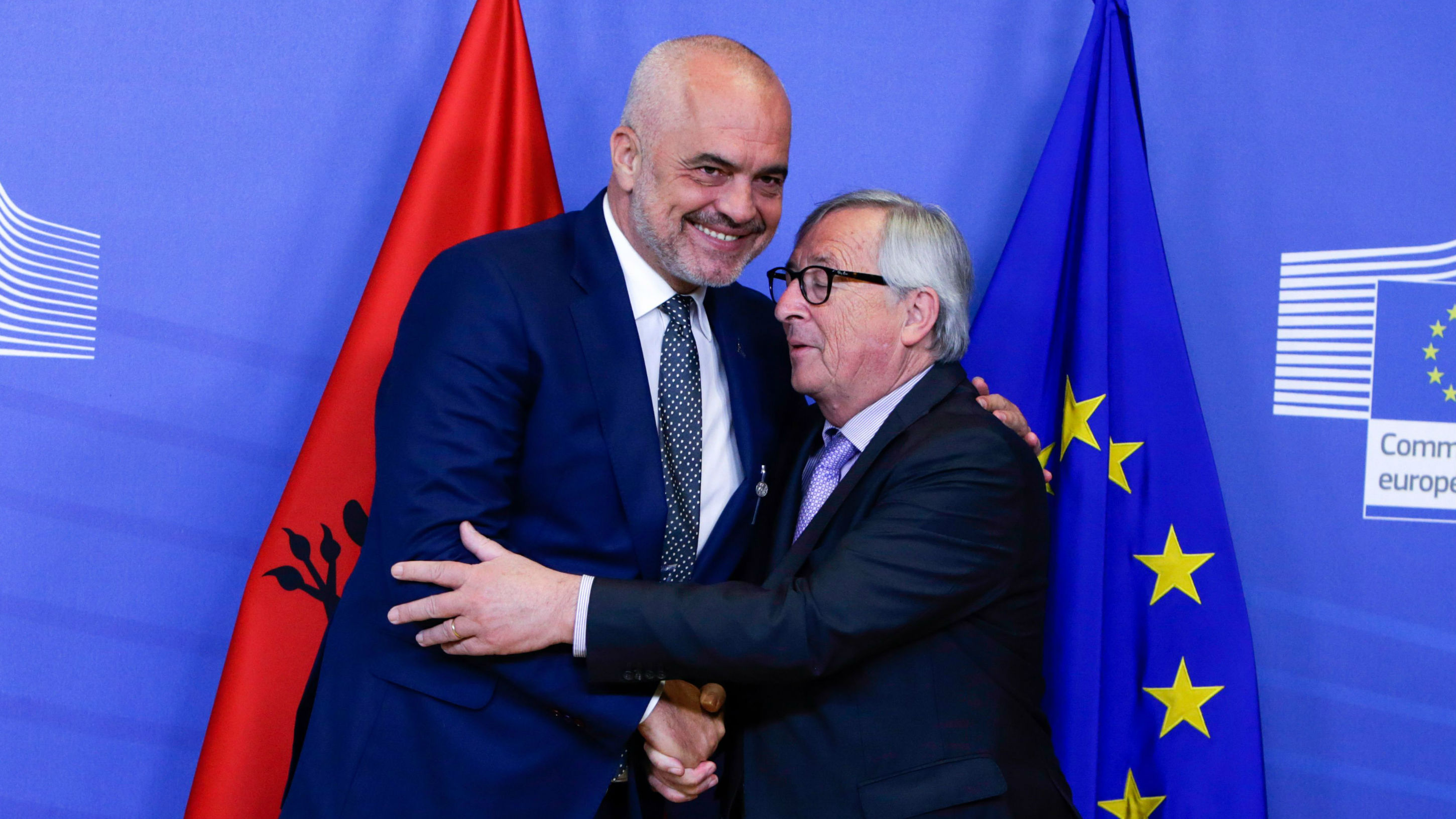Will Albania and North Macedonia join the EU?
France and Germany scupper bid to schedule accession talks

A free daily email with the biggest news stories of the day – and the best features from TheWeek.com
You are now subscribed
Your newsletter sign-up was successful
Hopes of setting a date for formal talks on whether North Macedonia and Albania can join the European Union look set to be dashed this week, following interventions from France and Germany.
Ministers from the EU’s 28 member states are in Luxembourg today and top officials had suggested that the nations were ready to schedule talks on the accession of the two Balkan states.
Both would-be members have jumped through a series of hoops set by the bloc last year. Indeed, the country formerly known as Macedonia has even added “North” to its name, in order to resolve a long-running dispute with neighbouring Greece, which has a Macedonia region.
The Week
Escape your echo chamber. Get the facts behind the news, plus analysis from multiple perspectives.

Sign up for The Week's Free Newsletters
From our morning news briefing to a weekly Good News Newsletter, get the best of The Week delivered directly to your inbox.
From our morning news briefing to a weekly Good News Newsletter, get the best of The Week delivered directly to your inbox.
But now efforts to clear the path for accession talks have been hit by another stumbling block.
What happened last year?
In June 2018, a meeting of the EU’s General Affairs Council ended with a majority of member states in favour of allowing negotiations to begin about membership for Albania and Macedonia, as it was then known. However, resistance from France and the Netherlands meant no date was set.
Instead, the EU asked Albania and North Macedonia to make progress on tackling corruption and improving their judicial systems, and said a European Commission report on the “progress made” might lead to talks beginning “by the end of 2019”.
A free daily email with the biggest news stories of the day – and the best features from TheWeek.com
So what has gone wrong?
France insisted earlier this year that the report must not be released until after the EU elections, to avoid the issue of accession dominating the ballot, reports Politico.
Germany then said that a date could not be set at this week’s meeting because there would not be sufficient time to properly analyse the report.
Why is France reluctant to accept new EU members?
Both France and the Netherlands are said to have blocked last year’s bid to schedule the talks for fear of upsetting their parliaments and voters back home, says Reuters. French President Emmanuel Macron says he wants closer EU integration among existing states before new members join, but has been criticised for a lack of specifics on what reforms he wants, notes Politico.
Some opponents of Albanian and North Macedonian accession argue that right-wing parties in the EU would seize on anti-Balkan sentiment to whip up feeling against the bloc if negotiations begin.
How is Cyprus involved?
In a further complication, Cyprus has threatened to delay any future new EU member nations from joining – impacting hopefuls including Kosovo, Serbia, Montenegro and Bosnia and Herzegovina, as well as Macedonia and Albania. The Greek Cypriot government may block the text on future members in a tactical move aimed at forcing the EU to address its concern about Turkish drilling in the Eastern Mediterranean, suggests Reuters.
What will happen next?
According to Politico, political instability in Albania has raised the possibility of “decoupling” the two nations’ requests to join, with the EU instead considering one ahead of the other. An unnamed diplomat told the site: “Take my bet, it’s going to be North Macedonia only but in September or October.”
Even when a date is set for negotiations to start, it will be years before accession can happen.